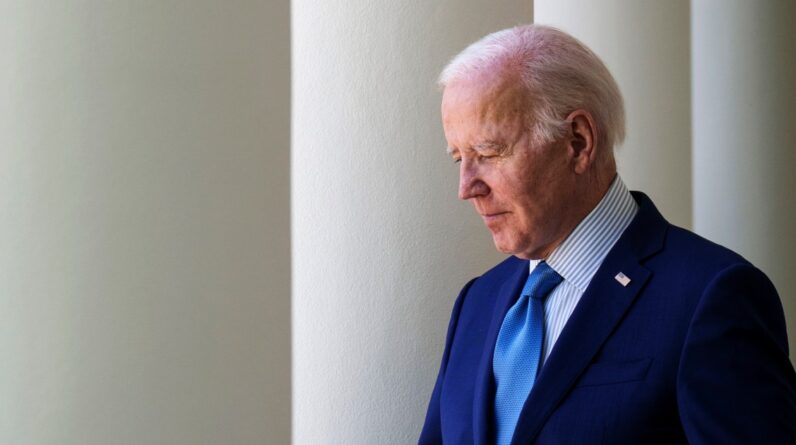
WASHINGTON — The Supreme Court on Friday struck down President Joe Biden’s student loan debt relief plan, meaning the long-delayed proposal aimed at implementing a campaign promise will not go into effect.
The justices, divided 6-3 along ideological lines, ruled in one of the two cases that the program was an illegal exercise of presidential power because it had not been explicitly approved by Congress.
The court rejected the Biden administration’s arguments that the plan was legal under a 2003 law called the Higher Education Student Aid Opportunity Act, or HEROES Act. The law says the government can provide relief to student loan recipients when there is a “national emergency,” allowing it to act to ensure people are not in a “worse financial position” as a result of the emergency.
Chief Justice John Roberts said the language in the HEROES Act was not specific enough, writing that court precedent “requires Congress to speak clearly before a department secretary can unilaterally alter large sections of the “American economy”.
The plan, which would have allowed eligible borrowers to write off up to $20,000 of debt and would have cost more than $400 billion, has been blocked since the 8th US Circuit Court of Appeals issued a temporary stay in October
About 43 million Americans would have been eligible to participate.
The student loan proposal is politically important to Biden, as addressing student loan debt was a key promise he made during the 2020 campaign to energize younger voters.
The ruling will immediately put pressure on the Biden administration to find an alternative way to forgive student debt that could withstand a legal challenge.
Advocates, as well as some Democrats in Congress, say the Education Department has broad power to forgive student loan debt under the Higher Education Act of 1965, a different law than the one at issue in the cases of the Supreme Court.
Separately, the student loan repayment process will start again at the end of August after being put on hold during the Covid-19 pandemic, although the first payments will not be due until October .
The court considered two cases: one brought by six states, including Missouri, and the other brought by two people who have student loan debt, Myra Brown and Alexander Taylor. The court ruled that the program was illegal in the case brought by the states, but found in the second case that the challengers lacked standing.
The three liberal justices on the conservative-majority bench dissented, with Justice Elena Kagan saying that by ruling against the plan, the court had “overstepped its limited and proper role in governing our nation.”
He said the states that filed the challenge lacked legal standing to even bring the case, and in analyzing the HEROES Act, the conservative justices ignored the law’s clear language.
“The result here is that the court supersedes Congress and the executive branch in making national policy on student loan forgiveness,” Kagan wrote.
The court decided the case in part based on a legal argument presented by the challengers that the conservative majority has recently embraced called the “leading question doctrine.”
Under the theory, federal agencies cannot initiate new policies that have significant economic impacts without express authorization from Congress.
The conservative majority cited the major questions doctrine last year in blocking Biden’s Covid-vaccination or testing requirement for larger companies and curbing the Environmental Protection Agency’s authority to limit emissions of carbon from power plants.
The challengers argued that the administration’s proposal, announced by Biden in August and originally slated to take effect last fall, violated the Constitution and federal law, in part because it bypassed Congress, which according to They have the sole power to create laws related to student loan forgiveness. .
Biden had proposed canceling student loan debt during the 2020 presidential election campaign.
Finally, the administration proposed to forgive up to $10,000 in debt for borrowers earning less than $125,000 a year (or couples filing taxes jointly earning less than $250,000 a year). Pell Grant recipients, who are the majority of borrowers, would be eligible to receive an additional $10,000 in debt relief.
The administration closed the application process after blocking the plan. Holders of student loan debt currently do not have to make payments as part of the Covid relief measures which will remain in place until the Supreme Court makes its ruling.
The nonpartisan Congressional Budget Office estimated in September that Biden’s plan would cost $400 billion.
[ad_2]
Source link





